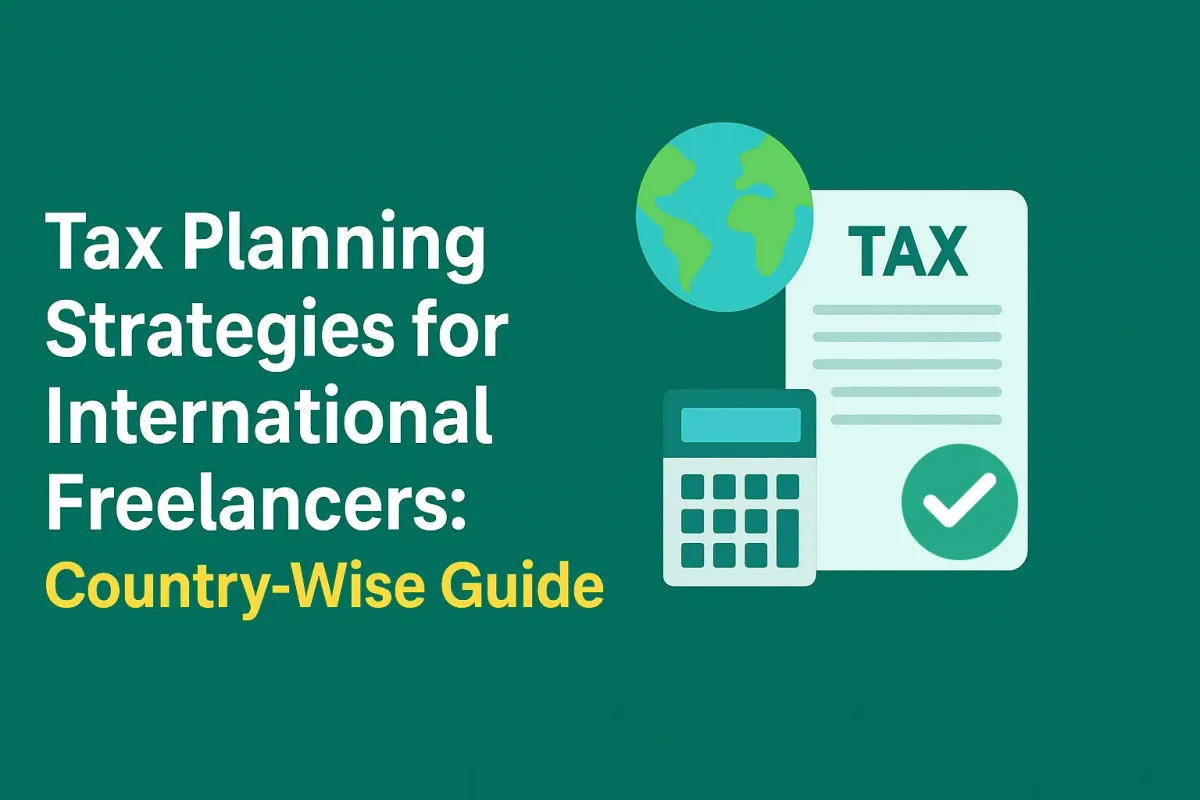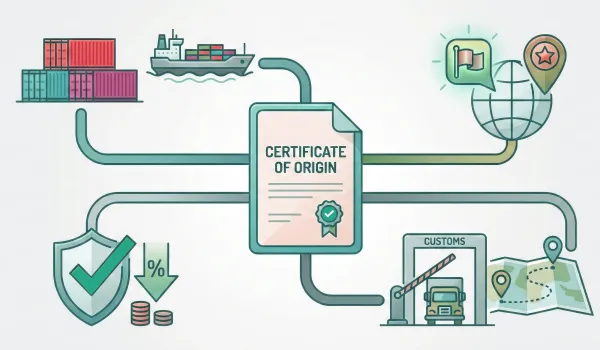Tax Planning Strategies for International Freelancers: Country-Wise Guide

Freelancing provides the flexibility to work with clients all over the world. Still, at the same time, it also comes with unique tax challenges, especially for Indian freelancers dealing with international income. Knowledge of the nuances of tax obligations in other countries can save you a lot of money and also ensure compliance. This guide covers essential tax planning strategies tailored for Indian freelancers working with international clients.
Understanding Your Tax Obligations
An Indian freelancer's income from foreign clients is usually taxed in India. However, some variations depend on the country of the client's location and any Double Taxation Avoidance Agreements (DTAA) applicable. Here are some key considerations:
- Tax Residency: Your tax residency status will determine your tax obligations in India and abroad. You will be a resident for tax purposes if you have spent more than 182 days in India during the financial year.
- DTAA Benefits: Avail DTAA to avoid double taxation. Use it while you are paying income taxes abroad, and a foreign tax is creditable under India. Acquire the TRC so as to make a valid claim.
Country-Specific Insights
United States
Freelancers working with U.S. clients should be aware of the following:
- Form W-8BEN: Submit this form to your U.S. clients to certify your foreign status and claim any applicable tax treaty benefits.
- Foreign Earned Income Exclusion (FEIE): If you meet specific criteria, you may exclude a portion of your foreign earnings from U.S. taxation.
United Kingdom
For those freelancing for UK clients:
- VAT Registration: If your annual turnover exceeds £85,000, you must register for VAT. However, services provided outside the UK may qualify as zero-rated.
- Self-Assessment Tax Return: UK clients may require you to complete this return if they are paying you directly.
European Union
Freelancers in the EU face different regulations:
- VAT Implications: EU countries have varying VAT thresholds. If your services are subject to VAT, ensure compliance with local regulations.
- Cross-Border Services: Understanding the place of supply rules is crucial as they dictate where VAT applies.
Strategic Tax Planning Tips
- Opt for Presumptive Taxation: Under Section 44ADA of the Income Tax Act, if your gross receipts do not exceed ₹75 lakhs annually, you can declare only 50% of your income as taxable. This simplifies bookkeeping and reduces tax liability.
- Maximize Deductions:
- Section 80C: Invest up to ₹1.5 lakhs in eligible instruments like ELSS or PPF.
- Section 80D: Claim health insurance premiums for yourself and your family.
- Section 80G: Deduct contributions to specified charitable institutions.
- Advance Tax Payments: In case the total tax liability is more than ₹10,000 in a year, then the advance tax needs to be paid in four installments in a year. In this way, you will avoid penalties for non-payment of taxes.
- Keep Accurate Records: Record all your income and expenses pertaining to your freelance work. It will not only be helpful during tax filing but also help you prove any claim that you might have for deduction or credit.
- Consult a Tax Professional: International taxation is a very complex area. Therefore, one should consult with a tax advisor who specializes in cross-border taxation to get the most appropriate advice for your situation.
Long-Term Financial Strategies
To ensure long-term financial stability while freelancing internationally:
- Emergency Fund: Set aside funds equivalent to at least six months of living expenses to cover unforeseen circumstances.
- Retirement Savings: Consider setting up a retirement account such as a Public Provident Fund (PPF) or National Pension Scheme (NPS) to secure your future financially.
- Invest Wisely: Explore investment opportunities that align with your risk tolerance and financial goals.
Conclusion
International freelancing is a highly demanding job requiring great diligence and strategic planning while navigating the tax landscape. Understanding one's obligations both in India and abroad, using available deductions, and keeping up with changes in tax laws are the best ways to optimize earnings while being compliant.
As the nature of freelance work continues to evolve, staying abreast with the latest international tax regulations will become crucial to maximizing profits and minimizing liabilities. Take proactive steps now to manage your taxes properly and secure a financially stable future as an international freelancer.


